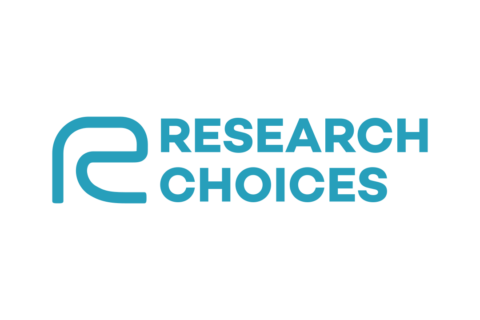Is it Helpful for Researchers to be “Moved” by Research?
By Edward Appleton and Aastha Tiku
Are the most meaningful, memorable moments for us as researchers when an emotional bond arises with our participants – we laugh with them, suppress a few tears maybe, hug….embrace mentally and physically?
Are the insights generated richer when the researcher “gives” as much as (s)he “takes”?
Or is this research madness, where we lose our ability to be objective, to be empirically balanced, think and see clearly because we’ve got too close?
For many quantitative researchers, this may seem an odd question – ever met a respondent yourself in a survey?
For quallies, especially those in social research, it’s an interesting issue: are we better researchers when we engage very closely with our subject matter?
Immersive qualitative research conducted by Happy Thinking People over the past 12 weeks into hip-hop sub-cultures and rapping in Mumbai has lead us suggest that the richest research results are often generated when the researcher gets more involved than the interview guide suggests or allows – when he or she goes off-track, creates multiple rapport relationships with participants, leading to an emotional openness that results in totally fascinating research findings.
It can go further: the research effectively changing the researcher – our lead researcher is now learning how to rap!
We’re presenting a short version of the findings at the Festival of New MR on February 4 – http://bit.ly/1J6K0Gl; we’ll also be reporting here with more details after the event with a follow-up blog.
In terms of methodological approach, here are some of the take-outs that we can share up-front on the pros (and a few cons) about “getting involved as a researcher”.
- Rich Immersions – Worth the Effort!
When we initially approached the rapping challenge, we knew that doing focus groups or IDIs wouldn’t get us far in understanding socio-cultural complexity. What we didn’t anticipate was how quite how intricate and varied all the languages, the slang, the rules codes of Indian sub-culture rap were – and that we would need to work very hard to get to a more understanding, “insider” position.
We changed our approach to involve visiting gigs, being part of the audience, listening to different rapping styles in our free time, asking to be introduced to rappers, trying to gain the confidence of accompanying the groups before and then after the concerts.
The output was fascinating – and humbling. Our discussion guide proved pretty flexible.
- Life is messy – great research designs allow for that.
Messy research forms (such as immersive ethnographies) that mimic life as closely as possible are potentially troublesome, time-consuming, frustrating at times, but they are immensely rewarding. And insights-rich.
To understand the young rappers in the suburbs of Mumbai we had to spend time gaining their trust, presenting ourselves as real people rather than “researchers.”
Their curiosity (and fear) about us was likely as high as ours about them.
We had to hang with them, slowly gain their trust to be party to their conversations, fears, insecurities.
This was time-consuming, certainly meandering, but indispensable for us to understand the nuances of the rapping stories we heard, the particular emotional mix of anger and hope characterising much of these rapping Indian sub-cultures.
Maybe the acceptance of non-linearity is culturally specific to India, or this particular task. We’d suggest that a lot of other research tasks would benefit from having more freedom to go with the flow when participants nudge you off-track, so to speak.
Which leads to the next point…..
- Stop Pretending you’re the Boss!
Much research is a relatively organised, one-way process: we wish to discover something from people. They play along – at worst it can be a sort of unspoken game, take the incentive (if there is one) and go home. Getting beyond the “mask” or the “presented narrative” is easier if you’re actually doing things with a participant – jamming with them, for example, understanding a few of the technicalities involved. This lead us to revealing details – for example, one rapper told us that his extremely impressive-looking rapper gold chain was actually borrowed from his Mum!
These are just a few of the learnings from our work with rappers in Mumbai – and how an immersive approach helped us. There are also downsides:
- Getting lost in your personal fascination
- Underestimating the amount of time needed
- A diminished ability to compare and contrast
Coming back to the original question: is it beneficial for researchers to be “moved” by research? To get more closely involved, personally?
On balance, and in an ideal world independent of time and therefore cost constraints, we’d say: yes, with caveats.
It’s great to be moved by research – empathy is the beginning of understanding, and hopefully insights. If we can retain a sense of balance and perspective, stepping back when we need to before going close again, maybe we can achieve the ideal balance. Something to aspire towards.
Curious, as ever, as to others’ views.
Edward Appleton and Aastha Tiku, Happy Thinking People Berlin & Mumbai



7 comments
Hi Dave, it would be a great thing for Congress – “if only connect” motto, and then putting some WOW into that, which Ellen certainly did for me with her comments, or rather her moving narrative. Submission for papers is closed, as I recall – but maybe there are other platforms.
nice article, great debate material. I suggest ESOMAR think about putting this on stage some time at CONGRESS. Like Annie I can’t imagine a researcher who does not get involved in any subject. we are afterall human. everything, everything is subjective from the way we express ourselves in a meeting with the client to how we design research. we are certainly subjective in our selection of methods and how we interpret what we find. it does not make for lesser research. It often makes for better learning. Surely we have all been involved in a study where we violently disagreed with what respondents were telling us … but learnt from it ? I know I certainly have.
Ellen – “thank you for sharing” is a tired phrase, but honestly, thank you for writing such a moving comment.
Paul – we’re all geeky. I’d love to hear more about your take on the research agenda. Thanks so much for chipping in
I used to do a lot of one on ones in the medical arena. For a couple of years, I was doing work with HIV+ patients for a company that was creating drug cocktails back in the days when methods were less effective than today.
It was very difficulty to listen to their stories knowing that the purpose of the research was to ultimately create an effective price mix for next generation products. Often the discussion on side effects led to the knowledge that a life partner was also infected, had passed away or was not showing symptoms but lived in fear. Many of these patients also had HIV related cancers.
Those interviews were incredibly hard to conduct but after awhile you begin to realize how random life events can be and how much we take for granted everyday. I was reminded of this again when I did interviews with homeless women with children. They wanted the same things all parents want and they weren’t the stereotype of drug users, irresponsible or worthless. They were poor, often had high school educations or some college and often their circumstances came from layoffs or firings because they had no support network and missed work because their kids were sick.
Although the reports were generally pretty easy and there were clear findings, it was still a funny feeling to strip out the emotion and boil the findings down to nameless participants, open ends and key drivers. Most of the client researchers outsourced the work for that very reason. You do what you get paid to do and when you feel like you have had enough you move on. In my case, I moved on to corporate research where people lover or hate products and the world doesn’t end on any decision. The worst thing you see is a client who doesn’t buy the findings and you have to justify.
It’s fun to see people get excited about a potential product and its interesting to see people reject a product or brand and even more interesting to study how loyalty evolves and at the end of the day, it stays on your desk, not in your head.
I got into research with the idea that the world could be a little better with the right research and I am not sure that is really true but I’d like to think that the things I do at least don’t make it any worse. If you love what you do there is always an emotion because you are invested. When you quit loving it, you need to move on and find something that does make you feel happy.
As a communication scientist who uses Media Psychophysiology (Biometric Research) to examine how individuals process and respond to media content and technology this is a great reminder that research should never be solely about using people as “measures.” It’s easy for social empirical scientists to adopt that perspective. This is my geeky quant researcher take on being moved by my research. That and the passion I have for the research agenda.
Hi Annie, thanks for your comment. Sounds like you never met a Researcher who wasn’t emotionally affected by a Project? But just as a matter of interest – why would someone who is analytically brilliant, for example, but more emotionally detached, be ineffective? Cultural aspects?
I wouldn’t want to work with someone who wasn’t emotionally affected by the research they did! That would be a pretty boring person, and likely very ineffective person!